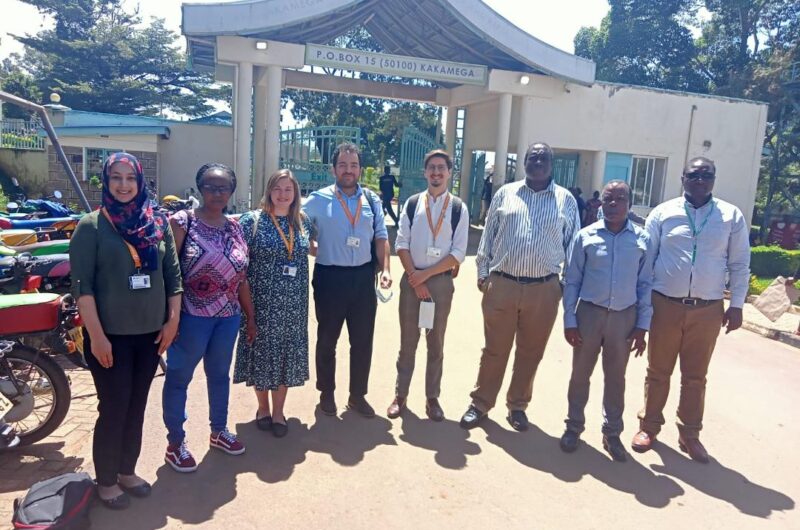Taking steps towards establishing a centre of excellence
A health partnership supported by Cambridge Global Health Partnerships (CGHP) and with funding from the Commonwealth Partnerships for Antimicrobial Stewardship Scheme (CwPAMS), is aiming to strengthen antimicrobial stewardship (AMS) at Kakamega County General Teaching and Referral Hospital (KCTRH) in western Kenya.
Background
Lots of work has already happened: the partnership team has conducted the first-ever Global Point Prevalence Survey at KCTRH, trained 35 AMS champions and developed a Gender Equity and Social Inclusion manual. This year, the hospital’s first-ever AMS policy was published – a critical document with potential county-wide implications.
In the latest phase of the project, the partnership teams are busy establishing KCTRH as a centre of excellence for AMS and working across Kakamega county to extend AMS best practice to sub county hospitals. In October 2023 chief pharmacist and head microbiology scientist Lindsay Olima and Rose Malaba from KCTRH visited Cambridge, before a multidisciplinary team of UK-based partnership members headed out to Kakamega.
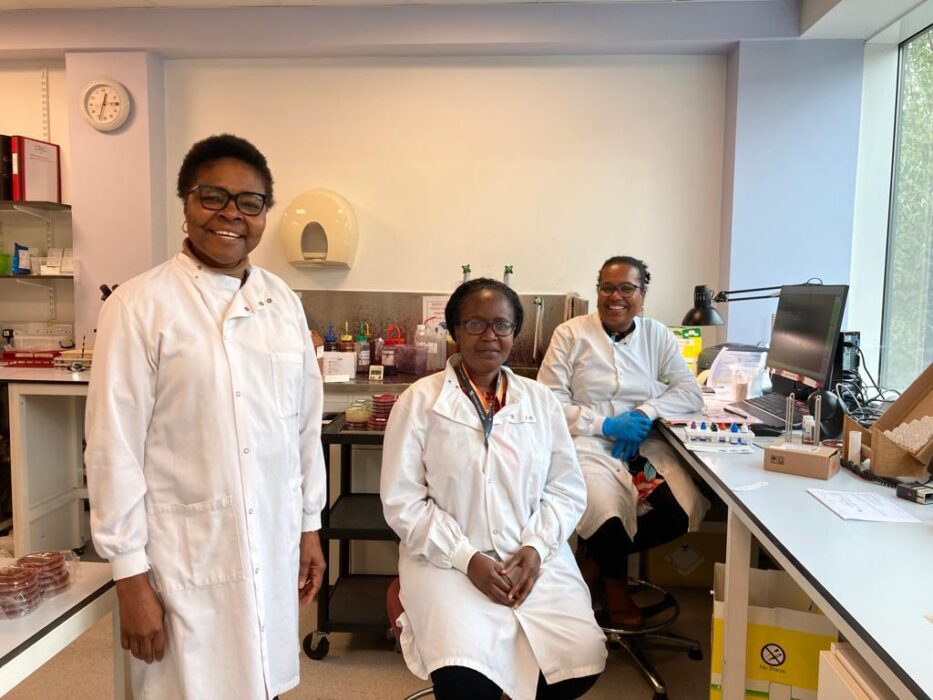
Visiting Cambridge
Bi-directional learning is a vital component of the Kakamega-Cambridge partnership and Rose and Olima were able to shadow pharmacists at Royal Papworth Hospital (RPH), attend ward rounds at both RPH and Cambridge University Hospitals (CUH), and observe laboratory processes at Norfolk and Norwich University Hospital. This provided lots of opportunity to share clinical experience and learn from each other on ways to improve the AMS in both the UK and Kenya.
“I experienced a paradigm shift from the low resource setting to a high resource setting with regards to patient care. I was also wowed by the incorporation of robots and a robust EMR system that helped in optimising the patient care at RPH,” explains Olima. “In short I came back from the visit a different person from the one who left Kakamega.”
Both Rose and Olima noted the great relationships between the nurses, doctors and pharmacists and how it improves patient outcomes, in particular the direct communication and discussion between clinicians and lab staff. “My best experience was being able to conduct my first AMS ward round with Dr Cristiano Serra and also being taken through the training on Therapeutic Drug Monitoring with both Cristiano and Dr Pai at RPH,” says Rose.
Visiting Kakamega
The UK-based team who travelled to Kenya comprised antimicrobial pharmacist Cristiano Serra, clinical trials pharmacist Bobbak Rabiei, consultant clinical microbiologist Ngozi Elumogo, and behavioural scientists Claire Borthwick and Atiya Kamal from the Change Exchange.
In Kenya, the partnership uses a hub and spoke model, KCTRH – a Level 5 county referral hospital – supporting three, smaller Level 4 hospitals. The reciprocal visit was a chance to work alongside local staff to observe AMS practices that are working well, as well as some of the barriers. “Being able to understand some of the harsh realities was very important because this will guide me in providing recommendations that can help the team in Kenya,” explains clinical pharmacist Bobbak Rabiei.
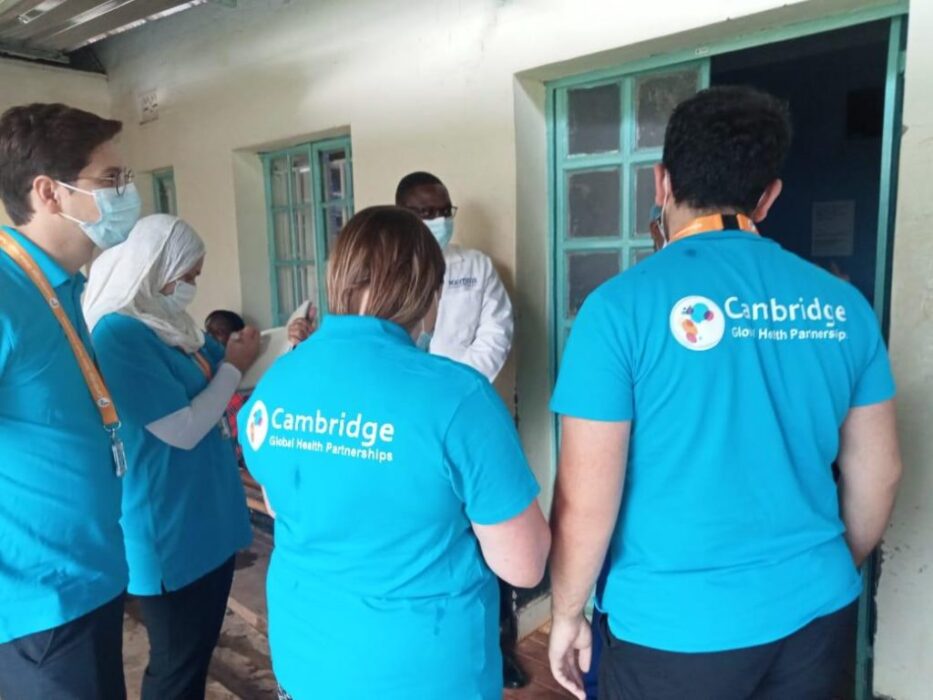
Going the extra mile
Although the hospitals face challenges with handwashing resources and microbiology facilities, they are committed to establishing committees to address infection prevention control and Antimicrobial Resistance. KCTRH already has an established Medicines and Therapeutics Committee as well as IPC and AMS committees that meet on a regular basis. “It was inspiring to hear about their work to promote hand hygiene. Those that didn’t yet have established committees were motivated to form them,” explains behavioural scientist Claire Borthwick.
The team observed that IPC measures were well followed in some wards especially those with the most clinically vulnerable patients, including hand hygiene, wearing PPE, good teamwork and leading by example. There was a real sense of staff wanting to go the extra-mile for patients who’d ’become family’. Staff at KCTRH and Navakholo Hospital reported that previous AMS training by the Kakamega Cambridge partnership has led to reduced prevalence of sepsis and surgical site infections, including for those transferred back to the Level 4 hospital.
But training in IPC and AMR typically happens on the job, so there is some variation in knowledge, attitudes and behaviour. “Examples included the belief that antibiotics need to be prescribed, otherwise ‘good care’ hasn’t been given, and the idea that prescribing antibiotics can compensate for challenges with IPC,” explains Claire.
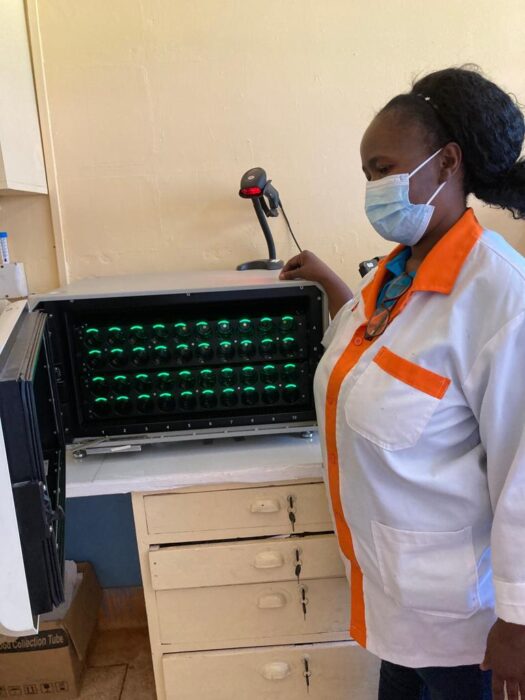
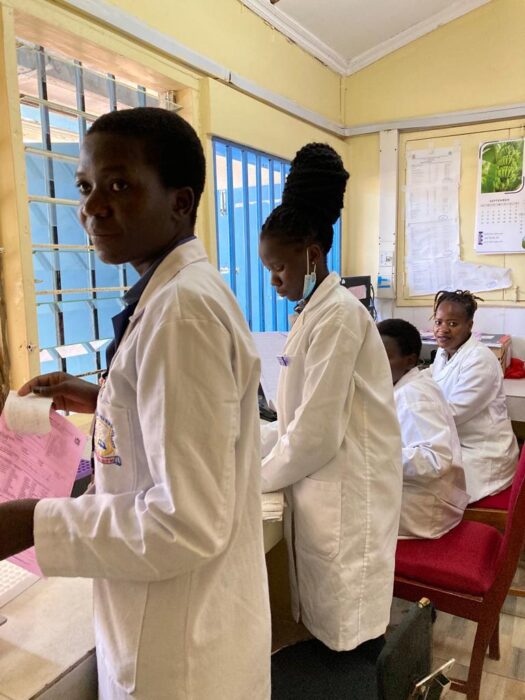
Dedicated laboratory staff
This year consultant clinical microbiologist Ngozi Elumogo joined the partnership to work closely with Kakamega-based lab staff in understanding how to build capacity for testing. Together with KCTRH’s head microbiology scientist, Rose Malaba, as well as senior consultants, hospital administrators and the clinical director of pathology, they’re looking at how to overcome limited resources, space and staffing to more efficiently diagnose sepsis, optimise blood culture processing and improve antimicrobial prescribing.
Again, in spite of limited lab resources, staff are knowledgeable, demonstrate a lot of enthusiasm and pride in their work, and perform a number of tasks simultaneously to overcome the shortages. Another strength across all sites is the availability of county-level antibiotic guidelines, the high level of knowledge about the importance of microbiology results to inform prescribing decisions, and now the publication of KCTRH’s first-ever AMS policy.
“The biggest success [of the trip] was establishing connections between the hub and spoke sites and creating opportunities for sharing good practices between them,” explains antimicrobial pharmacist Dr Cristiano Serra. “The publication of the hub’s first AMS policy lays the foundation for all AMS-related matters, with potential county-wide implications.”
World AMR Awareness Week
Since the visits, the staff at KCTRH marked World AMR Awareness Week with a busy programme of events across the partnership hospitals and towns including awareness-raising processions, celebrations and a symposium.
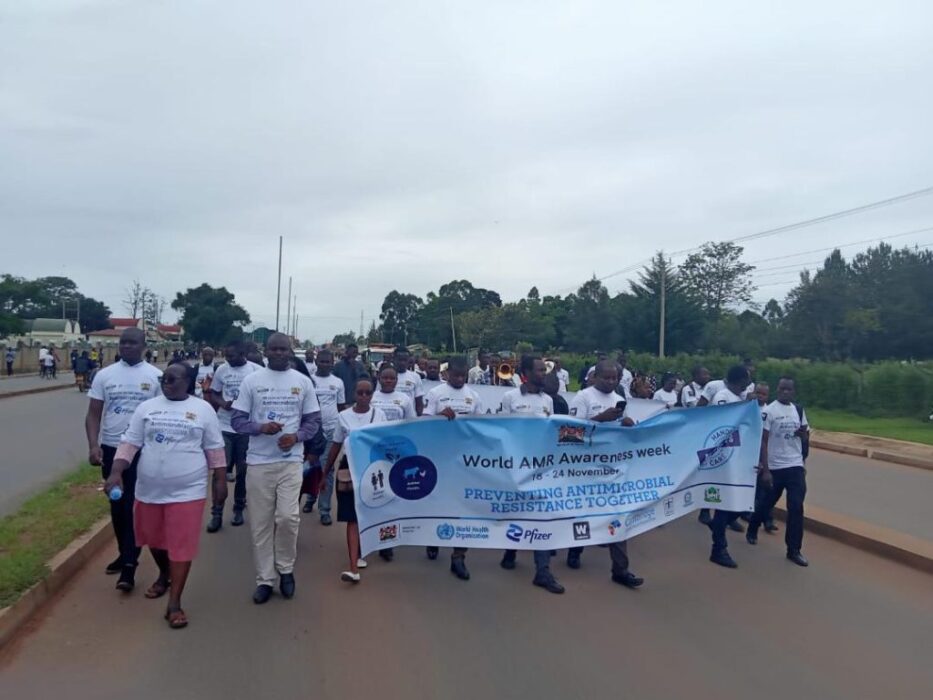
Return to blogs

